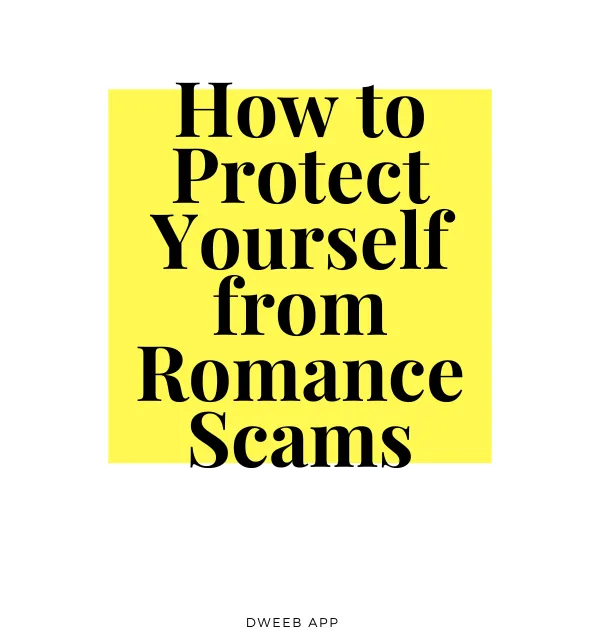
How to Protect Yourself from Romance Scams
“If you think you've been scammed, there are still a few things you can do” - dweeb
Introduction:
Romance scams are on the rise, and if you're not careful, you could be the next victim. In this blog post, we'll teach you how to protect yourself from romance scams, and what to do if you fall prey to them.

1. First:
First of all, it's important to be aware of the signs of a scammer. Typically, a scammer will try to gain your trust by professing their love for you very quickly, often without even meeting you in person. They may also ask for money or other financial assistance, often under the guise of needing it to move to your town or country. Finally, scammers often have poor grammar and use fake photos stolen from other profiles.
If you think you might be interacting with a scammer, it's important to cut off communication immediately and report them to the authorities. You can also block the person's email address and phone number.
If you've already been scammed, there are a few things you can do: first of all, contact your bank and credit card companies and have them put a fraud alert on your accounts. You should also report the scam to the police and file a complaint with the Federal Trade Commission (FTC). Finally, keep a close eye on your credit reports and credit score, and consult a credit counseling service if necessary.
Romance scams are a type of online fraud where someone tries to extract money from you by pretending to be in love with you. They might claim to be from another country and need money to move to your town, or they might ask for cash for some other invented emergency. Whatever the story, the goal is always the same: to get your money.
Romance scams are on the rise, so it’s important to be aware of the warning signs. Here are a few things to watch out for:
Someone who seems too good to be true. If your new love is perfect in every way, it might be a red flag.
Asking for money upfront, especially if they haven’t met you in person yet. Genuine online loves will never ask you for money before meeting in person.
Being asked to provide personal information like your address, social security number, or bank account details. Legitimate businesses will never ask for this kind of information over email or text message.
What to Do If You Fall Victim to a Romance Scam
If you think you’ve been scammed by someone you met online, there are a few things you can do.
First, stop communicating with the scammer immediately. This will help protect yourself from further harm. Change your passwords and contact details for any accounts that were compromised by the scammer.
Second, report the scam to the authorities– the police and your bank. They can help warn other people about the scammer and may be able to track them down.
Third, consult with an attorney. You may have grounds for a lawsuit against the scammer.
Fourth, seek counseling. Falling victim to a romance scam can be very traumatic, and counseling may help you recover from the experience. Seek counseling or advice from a trusted friend or family member.
When it comes to romance scams, there are a few things to keep in mind to help protect yourself. First, be very careful about who you meet online. Do your research on any potential matches, and be especially leery of anyone who asks for money upfront. Second, don’t share too much personal information with your new love interest. This includes things like your address, Social Security number, or bank account details. Third, if you do suspect that you’re being scammed, don’t hesitate to reach out to the authorities. They can help you investigate the situation and may be able to help get your money back.
If you’ve already been scammed by a romance scammer, there are still steps you can take to try and recover your money. First, contact your bank and report the scam. Then file a complaint with the Federal Trade Commission (FTC). Finally, reach out to the Better Business Bureau (BBB) to see if they can help mediate between you and the scammer.
dweeb is a free app that let's you quickly verify that someone is who they say they are with free reverse phone searches. Find out more for less than $1 per search by adding 10 advanced searches per month for $9.99/mo to access any other linked phone numbers, addresses, property records, or publicly available criminal data & more.


